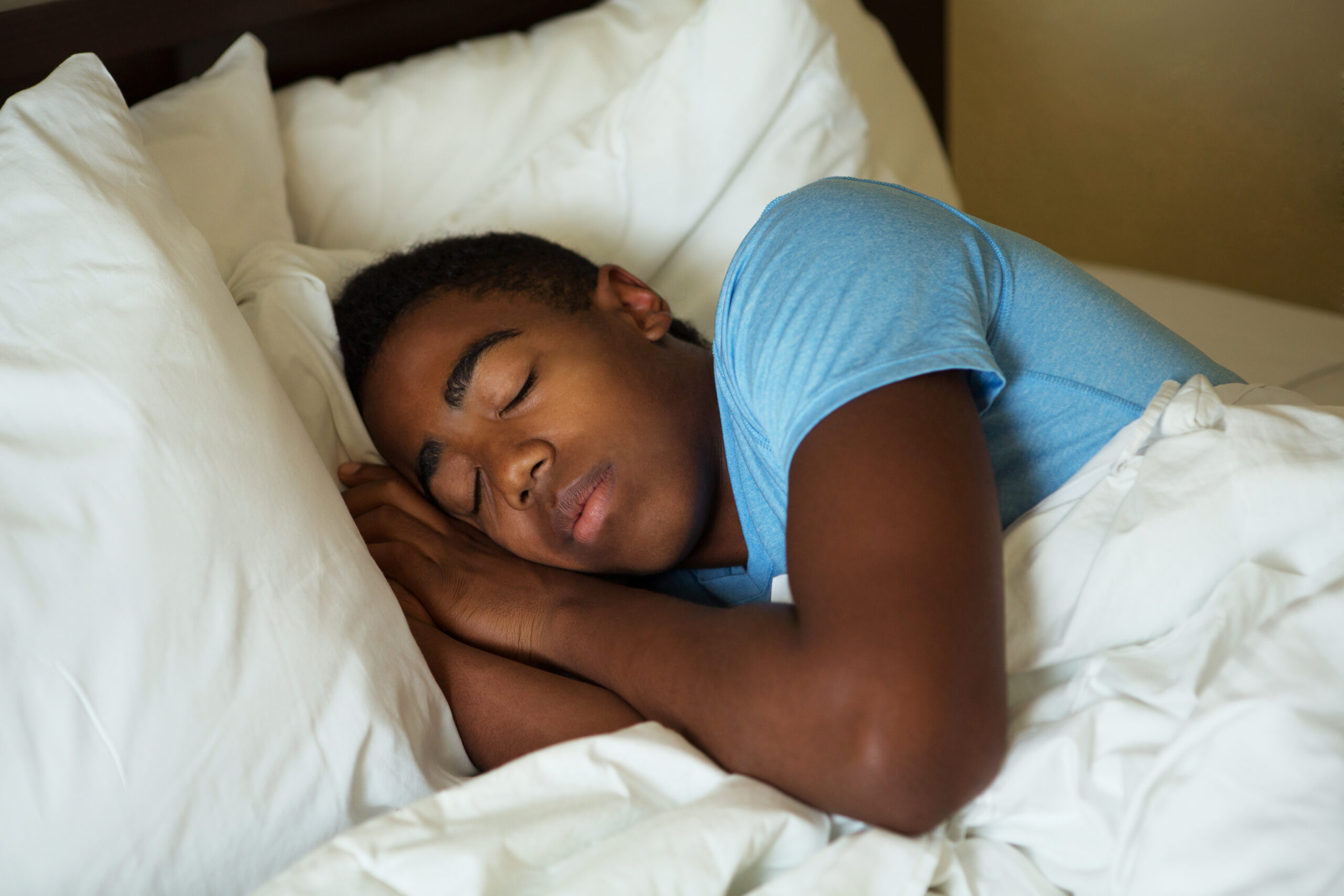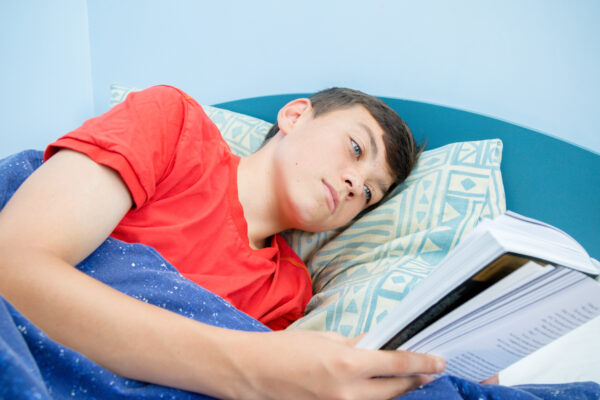 Sleep often takes a back seat to teenagers’ busy activity and social calendars. But what they may not realize is just like exercise and nutrition are important for healthy bodies, so too is a good night’s rest.
Sleep often takes a back seat to teenagers’ busy activity and social calendars. But what they may not realize is just like exercise and nutrition are important for healthy bodies, so too is a good night’s rest.
“Teens are going through puberty and rapid body changes, and still growing and developing in a lot of important ways,” said Kristin Lambert-Jenkins, MD, an adolescent medicine specialist at Akron Children’s. “Sleep is crucial for brain development, and physical and emotional health.”
While sleep needs vary from teen to teen, the American Academy of Sleep Medicine recommends teens aged 13 to 18 get 8 to 10 hours of sleep each night.
The problem is many teens aren’t meeting the recommended sleep needs. According to a recent survey by the U.S. Centers for Disease Control and Prevention, nearly 60 percent of middle schoolers and more than 70 percent of high schoolers do not get enough sleep on school nights. These kids are at a higher risk for obesity, diabetes, poor mental health, moodiness, behavior problems and attention issues.
Dr. Lambert-Jenkins offers 7 ways to help your teens catch their much-needed Zzz’s each and every night.
Stick to a consistent sleep schedule and bedtime routine.
Teens should go to bed at the same time each night and wake up around the same time every morning — even on weekends. Being consistent reinforces the body’s sleep-wake cycle. Especially on school nights, set a bedtime that is early enough for kids to get at least eight hours of sleep each night.
If possible, establish a relaxing bedtime routine, such as reading before bed, to prepare your teen’s body and mind for a good night’s rest.
Say good night to electronics.
It’s best to keep the bedroom free from electronics, including no TV, game system, smart phone or tablet. The blue light that electronics emit stimulates the brain and can suppress production of melatonin, making it more difficult to fall asleep.
However, if that’s not an option, at least make sure the devices are not within reach of the bed. It’s too tempting to grab it and scroll.
“It’s important kids turn off electronics at least 60 minutes before bedtime to start winding down for sleep,” said Dr. Lambert-Jenkins. “Establishing rules and consequences around devices, such as device time limits, media curfews and device-free bedrooms, can make it easier to enforce them.”

Instead of devices, which can make it harder for your teen to fall asleep, encourage reading or other calming activities to help your teen relax and unwind before bed.
Create a relaxing environment.
Your child’s bedroom should be quiet, dark and at a comfortable temperature for sleeping. Consider room-darkening shades, ear plugs or a fan to create a relaxing environment that suits your teen. These practices will help develop a strong mental association between bed and sleep.
Avoid overscheduling.
Having a busy schedule that runs right up until bedtime can make it difficult for teens to get enough sleep. If they are running from one activity to another, they won’t be able to finish their homework until later at night. Plus, when kids complete deadlines at the end of the day, it can make it harder to shut off the brain and fall asleep.
Discourage afternoon naps.
Discourage napping during the day, even if your teen was up late the night before. If kids nap too long or too late in the day, it can interfere with their sleep schedule and make it more difficult to fall asleep at night. They will wake up tired once again and want to nap. It can become a vicious cycle.
If your teen must nap, make sure it’s earlier in the afternoon and for about 20 minutes. They’ll feel refreshed without affecting their nightly sleep schedule.
Encourage an active lifestyle and time outside.
Being physically active during the day can help kids fall asleep more easily at night. Exercise can relieve stress and anxiety and tire them out. Spending time outdoors each day also can support a healthy sleep-wake cycle. Just be sure teens aren’t too active right before bedtime.
Ensure bed is for sleep only.
Encourage your teens to use the bed for sleep only. The bed shouldn’t be a place for studying, playing video games or scrolling on their phones.
“Our brain associates different places with different activities,” said Dr. Lambert-Jenkins. “If your teen often studies in bed, it could be associated with a place of stress and make it more difficult to fall asleep. Instead, associate your teen’s bed with sleep and relaxation to trick the brain into knowing it’s time to fall asleep. These environmental cues help us sleep better at night.”
All kids experience sleepless nights from time to time. But if your teen regularly has trouble sleeping and you have concerns about their sleep routine, talk to one of our pediatricians. If necessary, your provider can refer your child to a sleep specialist.











